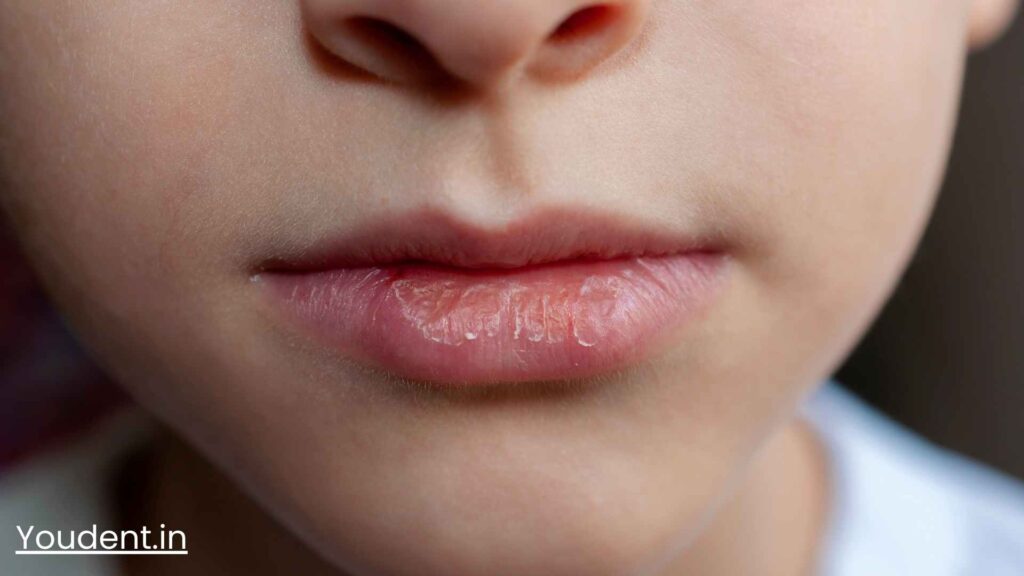
Dry Mouth Xerostomia | Dry Mouth Causes | Dry Mouth Symptoms
Dry Mouth Xerostomia
Dry mouth, medically known as xerostomia, is more than just an inconvenience. It’s a condition where your salivary glands don’t produce enough saliva to keep your mouth moist. For dental patients and health enthusiasts, understanding dry mouth is crucial because it can significantly impact your oral health. This blog post will guide you through everything you need to know about dry mouth, its causes, and how to manage it effectively.
Common Causes of Dry Mouth
Medications
One of the most common causes of dry mouth is medication. Over 400 types of medicine, including antihistamines, decongestants, painkillers, and antidepressants, can reduce saliva production. If you’re experiencing dry mouth, review your medications with your healthcare provider to identify potential culprits.
Health Conditions
Several health conditions can lead to dry mouth. Autoimmune diseases like Sjögren’s syndrome specifically attack the salivary glands. Diabetes, Alzheimer’s, and Parkinson’s disease can also affect saliva production. Understanding these underlying conditions can help you manage your symptoms more effectively.
Lifestyle Choices
Lifestyle choices can also contribute to dry mouth. Smoking, drinking alcohol, and using recreational drugs can all reduce saliva flow. Even your diet, particularly if it’s high in sugar and acidic foods, can exacerbate the problem. Making healthier lifestyle choices can often alleviate dry mouth symptoms.
Common Symptoms of Dry Mouth
Experiencing dry mouth can lead to a variety of uncomfortable symptoms. The most noticeable is a persistent feeling of dryness or stickiness in the mouth, which can make swallowing difficult. Other common symptoms include a dry, cracked tongue; difficulty in speaking; and a burning sensation in the mouth or throat. Individuals may also notice an increase in dental issues, such as cavities or gum disease, as saliva plays a crucial role in oral health. Additionally, dry mouth can lead to problems with taste, making food less enjoyable and impacting overall nutrition.
The Oral Health Consequences of Dry Mouth
Tooth Decay and Gum Disease
Saliva plays a vital role in maintaining your oral health. It helps wash away food particles and neutralize acids produced by bacteria in your mouth. Without adequate saliva, you’re at a higher risk for tooth decay and gum disease. Regular dental check-ups can help mitigate these risks.
Bad Breath
Another unpleasant consequence of dry mouth is bad breath. Saliva helps cleanse your mouth and remove particles that cause odor. When saliva production decreases, these particles accumulate, leading to bad breath. Proper oral hygiene can help manage this issue.
Difficulty in Eating and Speaking
Dry mouth can make eating and speaking uncomfortable. Saliva aids in chewing, swallowing, and even speech. A lack of saliva can lead to difficulties in these basic activities, affecting your overall quality of life. Staying hydrated and using saliva substitutes can provide relief.
Tips for Managing and Preventing Dry Mouth
Stay Hydrated
One of the simplest ways to combat dry mouth is to stay hydrated. Drinking plenty of water helps keep your mouth moist and can alleviate mild symptoms. Avoid caffeinated and sugary beverages as they can worsen the condition.
Use Saliva Substitutes
Over-the-counter saliva substitutes and mouthwashes designed for dry mouth can provide immediate relief. These products mimic the properties of natural saliva and can be particularly helpful during meals and before bedtime.
Maintain Good Oral Hygiene
Good oral hygiene is crucial in managing dry mouth. Brush your teeth at least twice a day with fluoride toothpaste and floss daily. Regular dental visits are essential to monitor your condition and prevent complications.
The Importance of Seeking Professional Advice
Consult Your Dentist
If you’re experiencing persistent dry mouth, it’s essential to consult the best dentist in Jaipur. They can provide an accurate diagnosis and recommend treatments tailored to your needs.Your dentist may suggest fluoride treatments or prescribe medication to stimulate saliva production.
Get a Personalized Treatment Plan
A personalized treatment plan can make a significant difference in managing dry mouth. Your dentist will consider your medical history, current medications, and lifestyle to create a plan that’s right for you. This comprehensive approach ensures you get the most effective treatment.
Importance of Regular Check-Ups
Regular dental check-ups are vital for anyone dealing with dry mouth. These appointments allow your dentist to monitor your condition and make necessary adjustments to your treatment plan. They can also detect early signs of tooth decay and gum disease, ensuring timely intervention.
Conclusion
Dry mouth is a common but manageable condition. Understanding its causes and consequences can help you take proactive steps to manage it effectively. From staying hydrated to seeking professional advice, there are multiple ways to alleviate dry mouth symptoms and maintain your oral health.
If you’re in Jaipur and looking for expert advice on managing dry mouth, consider visiting the best dental clinic in Jaipur. Our team of experienced professionals can provide personalized care and effective solutions to keep your mouth healthy.
By understanding the ins and outs of dry mouth, you can take proactive steps to manage it effectively. Stay hydrated, maintain good oral hygiene, and consult your dentist for personalized advice. If you’re in Jaipur, don’t hesitate to visit the best dental clinic in Jaipur for expert care and guidance.
Frequently Asked Questions
What causes dry mouth at night?
Dry mouth at night can be caused by several factors, including mouth breathing, certain medications, and dehydration. Using a humidifier in your bedroom and staying hydrated throughout the day can help.
Can dry mouth be a sign of diabetes?
Yes, dry mouth can be a symptom of diabetes. High blood sugar levels can lead to decreased saliva production. If you suspect you have diabetes, consult your healthcare provider for proper diagnosis and treatment.
How is dry mouth diagnosed?
Dry mouth is diagnosed through a combination of medical history, physical examination, and possibly saliva flow tests. Your dentist will assess your symptoms and may recommend further tests to identify the underlying cause.
Are there any natural remedies for dry mouth?
Yes, several natural remedies can help alleviate dry mouth symptoms. Chewing sugar-free gum, sucking on sugar-free candies, and sipping water throughout the day can stimulate saliva production and provide relief.
How long does dry mouth last?
The duration of dry mouth depends on its cause. If it’s due to medication, symptoms may persist as long as you’re taking the medication. If it’s caused by dehydration or lifestyle choices, symptoms may improve once these issues are addressed. Consult your healthcare provider for a more accurate timeline based on your specific situation.
Is dry mouth a serious condition?
While dry mouth itself is not usually a serious condition, it can lead to more severe oral health issues like tooth decay, gum disease, and infections if left untreated. It’s essential to manage dry mouth effectively and seek professional advice if symptoms persist.
Recent Blog
- दांतो में कीड़े कैविटी – लक्षण, कारण, इलाज़ एवं उपचार
- RCT कराने के बाद में क्या ख्याल रखना ज़रूरी हैं Root Canal Precautions in Hindi
- Single Tooth Implant Cost in India – YouDent Hospital
- Everything You Need to Know About Front Tooth Implants and Their Cost
- Understanding Teeth Arrangement and Types of Teeth

Dr. Rajesh Gupta
+91 08233792911
Mon – Sat: 09:00 AM - 08:00 PM, Sun - Off
Shop no - 4, Metro Station, New Sanganer Rd, opposite Pillar No. 84, Jaipur, Rajasthan 302019